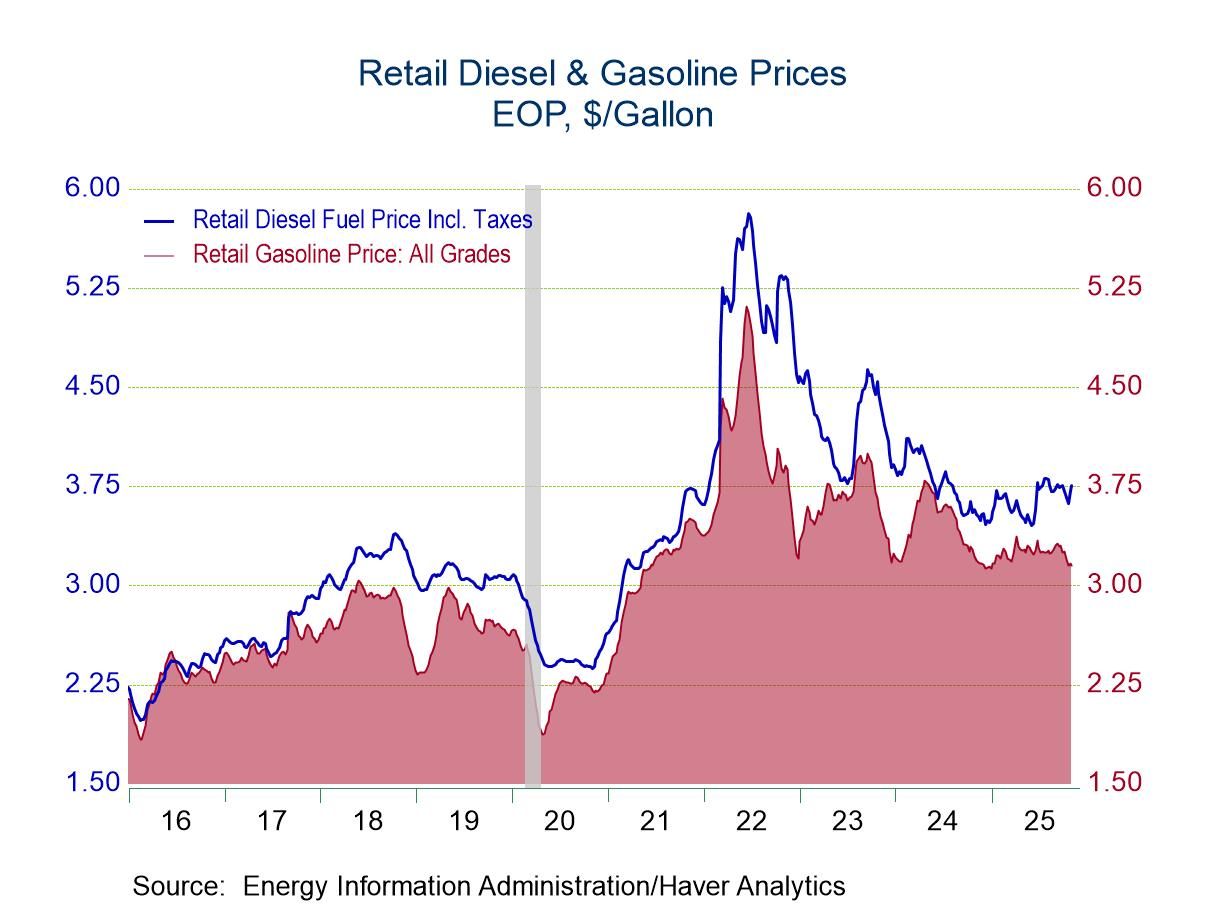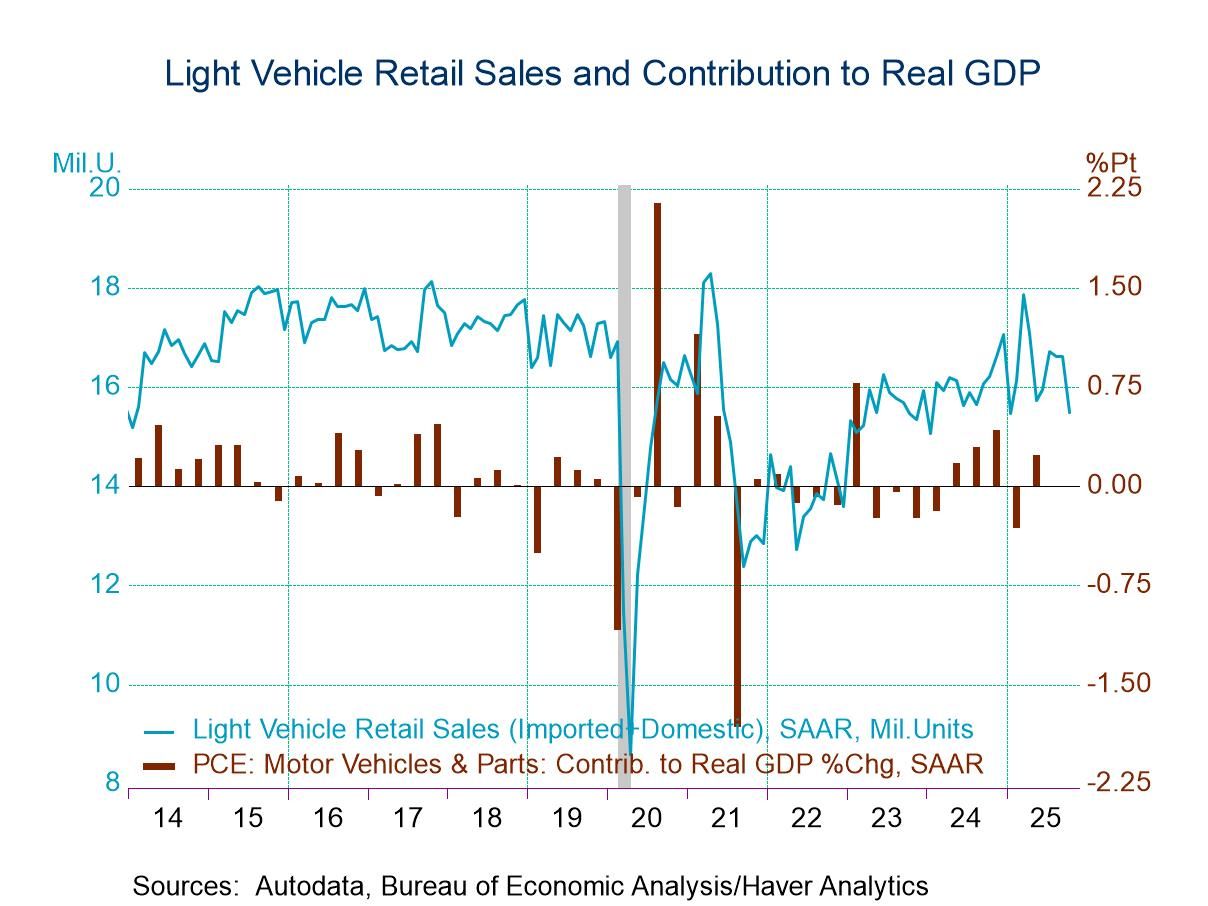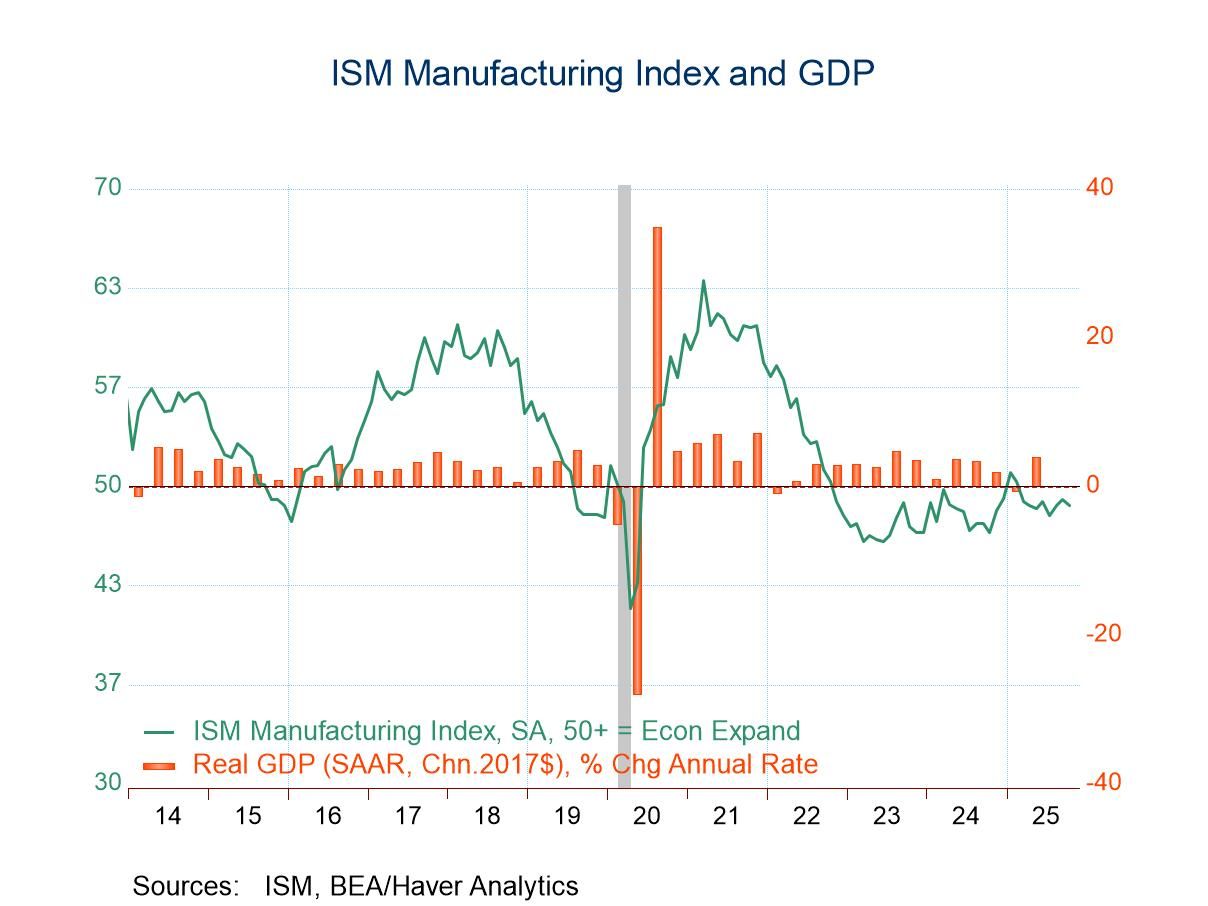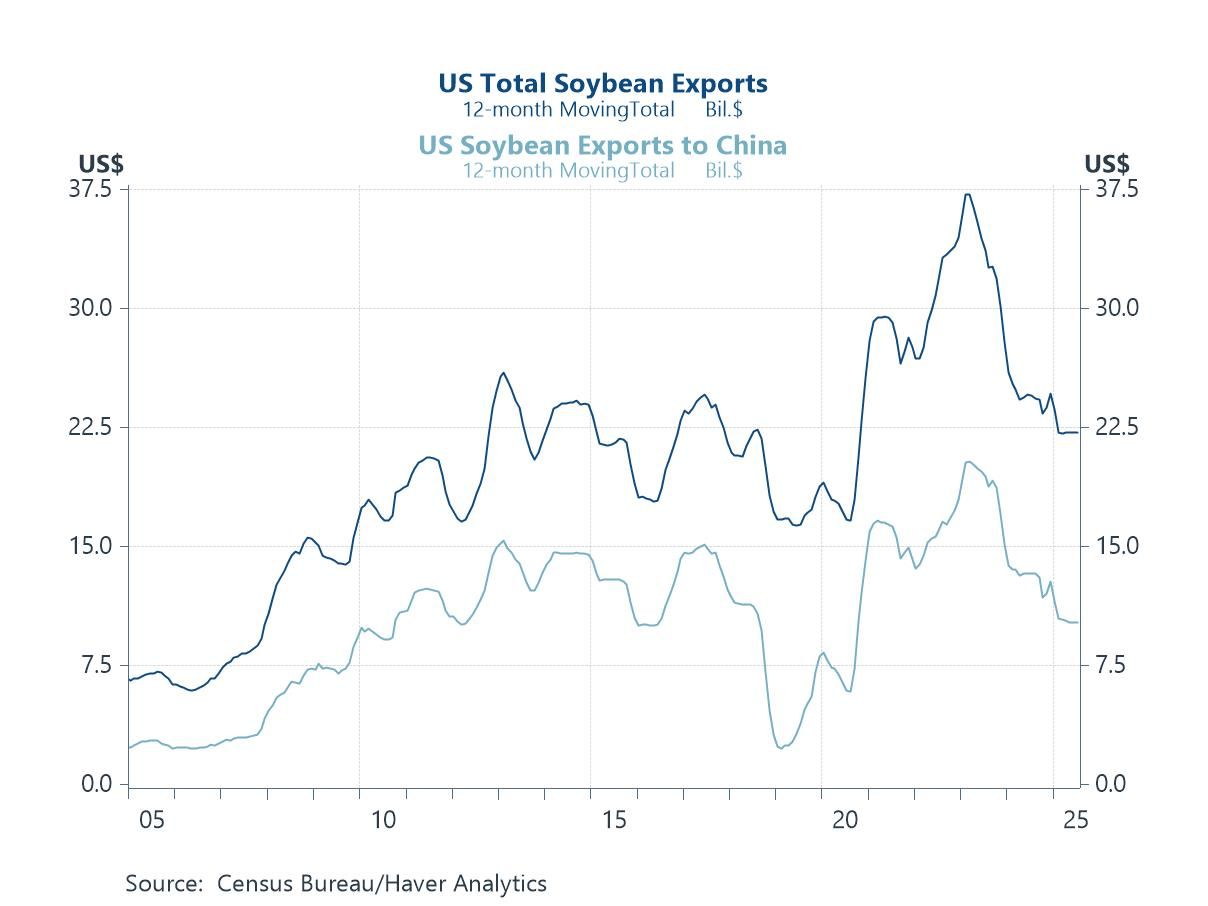 Global| Jan 10 2008
Global| Jan 10 2008U.S. Initial Unemployment Insurance Claims Fell
by:Tom Moeller
|in:Economy in Brief
Summary
Initial claims for unemployment insurance unexpectedly fell 15,000 last week to 322,000. The 20,000 decline during the prior week was little revised. The latest level was the lowest in two months, although seasonal adjustment [...]
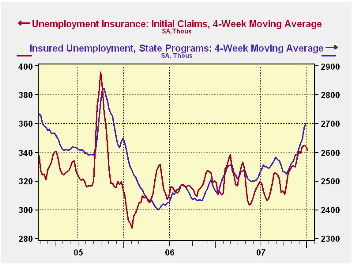
Initial claims for unemployment insurance unexpectedly fell 15,000 last week to 322,000. The 20,000 decline during the prior week was little revised. The latest level was the lowest in two months, although seasonal adjustment difficulties during the holiday season were indicated by the Labor Department to have been a factor in the drop.
The four week moving average of initial claims, a measure which smoothes out most of the series' w/w volatility, fell slightly to 341,000 (6.9% y/y) but remained near the highest level since 2005.
A claims level below 400,000 typically has been associated with growth in nonfarm payrolls. During the last six years there has been a (negative) 78% correlation between the level of initial claims and the m/m change in nonfarm payroll employment.
Continuing claims for unemployment insurance fell 52,000 after a little revised 41,000 surge during the prior week. The figure provides some indication of workers' ability to find employment.
The continuing claims numbers lag the initial claims figures by one week.
The insured rate of unemployment fell back to 2.0% after the one week rise to 2.1%.
Cyclical Movements Along the Labor Supply Function from
the Federal Reserve Bank of Boston can be found
here.
Today's speech titled Financial Markets, the Economic Outlook, and Monetary Policy by Federal Reserve Chairman Ben S. Bernanke can be found here.
| Unemployment Insurance (000s) | 01/04/08 | 12/29/07 | Y/Y | 2006 | 2005 | 2004 |
|---|---|---|---|---|---|---|
| Initial Claims | 322 | 337 | 4.2% | 313 | 331 | 343 |
| Continuing Claims | -- | 2,702 | 12.0% | 2,459 | 2,662 | 2,924 |
by Robert Brusca January 10, 2008
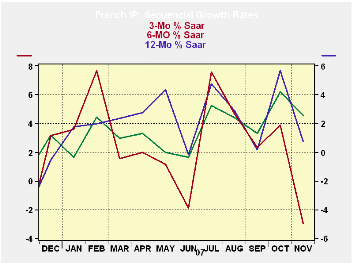
French IP sank by more than excepted dropping by 1.5% in
November. We can thank a French rail strike for some of this weakness.
It’s one of the reasons the declines spread across sectors - the rail
strike hit all sectors.
But in the fourth quarter-to-date total IP is up at a 2.5%
pace despite the flattering momentum. Consumer output is weak in Q3,
however, and is dropping at a 3.5% annual rate. Capital goods output is
strong in the quarter, up at a 3% pace in Q4. Intermediate goods output
is up at a very tame 0.3% pace in Q4 but auto output is leading the
pace with a 10.5% annual rate gain in Q4 with two months of hard data
in.
| French IP Excluding Construction | |||||||
|---|---|---|---|---|---|---|---|
| SAAR except m/m | Nov-07 | Oct-07 | Sep-07 | 3-mo | 6-mo | 12-mo | Quarter-to-date |
| IP total | -1.5% | 2.1% | -1.3% | -3.0% | 0.8% | 2.5% | 2.5% |
| Consumer goods | -0.3% | 0.2% | -1.6% | -6.6% | -1.0% | 0.6% | -3.5% |
| Capital goods | 0.3% | 1.2% | -1.2% | 1.4% | 7.2% | 5.7% | 3.0% |
| Intermediate goods | -1.6% | 1.8% | -1.1% | -3.6% | -2.0% | 1.2% | 0.3% |
| Memo | |||||||
| Auto | -5.3% | 7.5% | -4.2% | -9.6% | 0.8% | 2.5% | 10.5% |
Tom Moeller
AuthorMore in Author Profile »Prior to joining Haver Analytics in 2000, Mr. Moeller worked as the Economist at Chancellor Capital Management from 1985 to 1999. There, he developed comprehensive economic forecasts and interpreted economic data for equity and fixed income portfolio managers. Also at Chancellor, Mr. Moeller worked as an equity analyst and was responsible for researching and rating companies in the economically sensitive automobile and housing industries for investment in Chancellor’s equity portfolio. Prior to joining Chancellor, Mr. Moeller was an Economist at Citibank from 1979 to 1984. He also analyzed pricing behavior in the metals industry for the Council on Wage and Price Stability in Washington, D.C. In 1999, Mr. Moeller received the award for most accurate forecast from the Forecasters' Club of New York. From 1990 to 1992 he was President of the New York Association for Business Economists. Mr. Moeller earned an M.B.A. in Finance from Fordham University, where he graduated in 1987. He holds a Bachelor of Arts in Economics from George Washington University.



